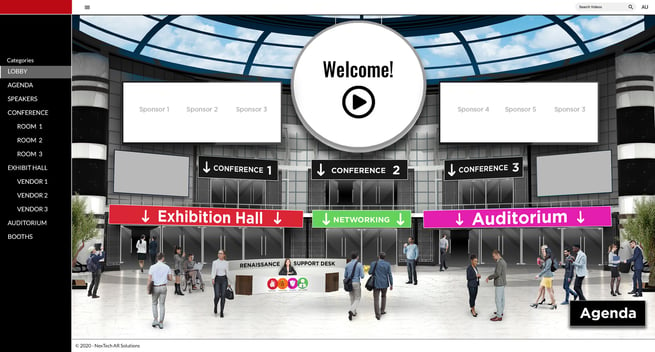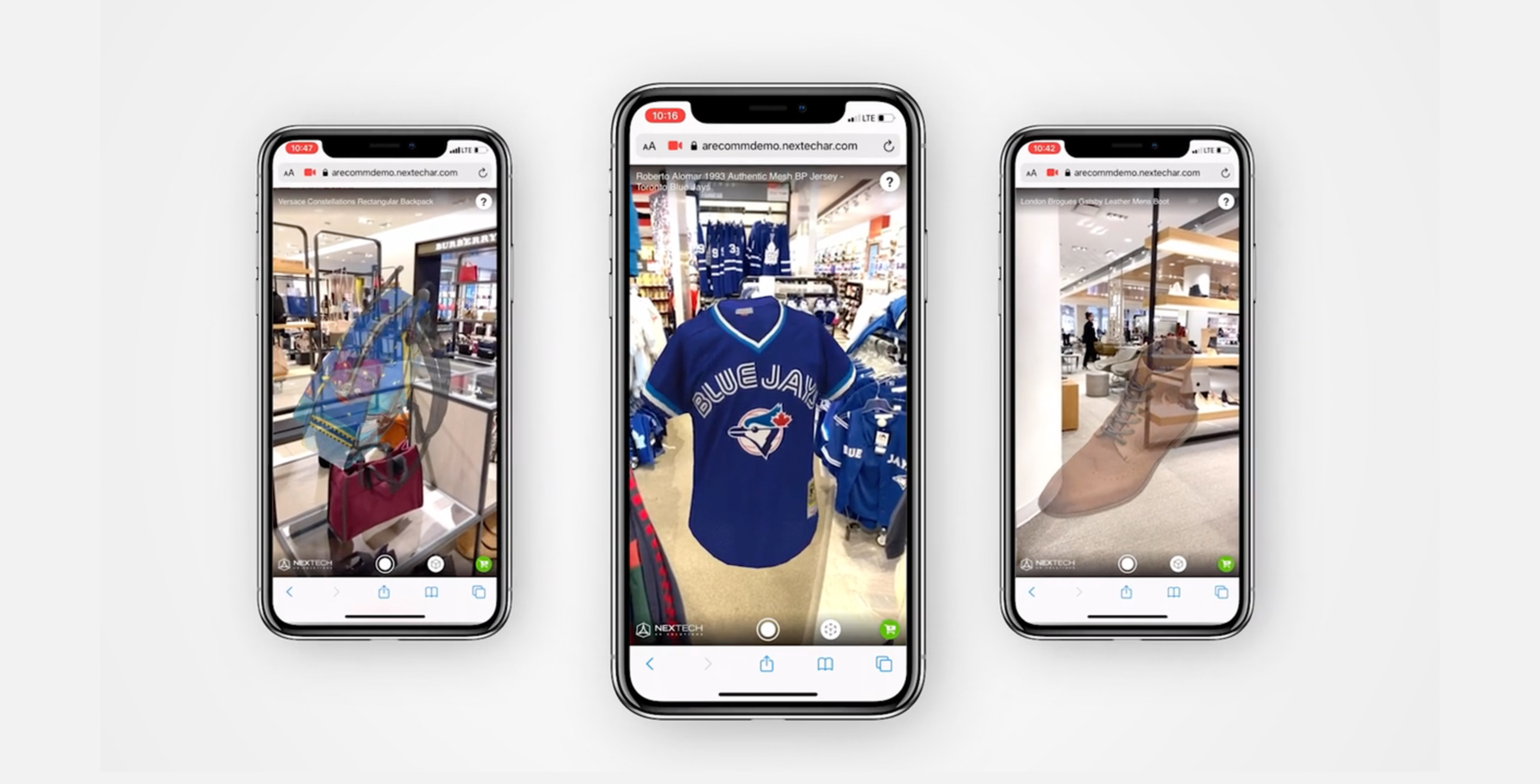The event industry is undergoing a major and unexpected transformation and the reason behind it is simple: COVID-19 outbreak, which led to thousands of in-person business gatherings being postponed or even cancelled.
Companies around the world were forced to choose from either not hosting the event at all or making an emergency transition to virtual. As you can imagine, neither of those options were perfect but they were all that we had (and still do!).
This has resulted in virtual events being considered as "damage control"; a way to survive until it's safe again to host live events rather than another valuable marketing method. The months-long isolation and sudden switch to remote work also played a vital role here, leaving people exhausted due to attending multiple virtual meetings every day and craving face-to-face interactions.
Which brings us to the question everyone's asking: are virtual events here to stay?
Yes, they are - but they need to change.
The challenges virtual events face
The biggest challenge of virtual events is that they're not in-person events and they'll never replicate the live experience. And yet, this is exactly what most virtual event companies aim for (our InfernoAR platform included) - to make attendees feel as if they were right there in the trade show lobby themselves:

However, we've come to realize doing this is futile at best and decided to stop pretending it's possible because it isn't. Period.
Not only that, we believe that attempting to imitate the live experience cultivates the concept of virtual business events being the second-best option. And the idea of something being the second-best option implicates it doesn't require as much effort or resources to create or in this case, organize.
The consequences are ugly: an atrocious experience no person wants to go through ever again that reflects negatively not just on the event itself but mainly on the brand.
It's also worth noting that even though online events have evolved more in the last few months than they have in the past five years, the industry is still in its infancy. Meaning that virtual event platforms have only just begun improving and innovating their solutions and are still largely at the "trial and error" stage of growth.
This creates friction between what's expected of them (a Netflix-like experience) and what can actually be delivered.
But the benefits of virtual events are clear:
Greater audience reach
We've got to admit, travelling to new places can be exciting. But it can also be draining. Attending a live event means having to spend hours at the airport waiting for a flight, finding a hotel room and dealing with jetlag throughout the entire event.
With virtual events, whether it be a virtual conference, virtual trade show, exhibition or a workshop, there's no need to endure any of that - attendees can join in from the comfort of their own homes and access your content at their convenience which positively impacts the attendance rates.
Cost-effectiveness
84% of companies which have run an online event in 2020 reported spending less money organizing one compared to live events. Hosting a virtual event greatly reduces costs for both, the participants (travel) and your business (venue fee, service staff, etc).
Data
We've saved the best to the last. Arguably, the biggest advantage of hosting virtual events is the data they gather.
Most virtual event platforms are equipped with powerful analytics function that tracks user behaviour during the event, collecting information such as which session had the most views or even who viewed your product demo. Knowing what actions were taken and by whom gives you an opportunity to create more personalized marketing and lead nurturing campaigns in the future.
It's definitely not achievable during live events - not at this scale, anyway.
And so organizing a virtual event requires a different approach
Attending in-person events puts people in the 'vacation' mindset - travelling, taking time off the daily responsibilities and leaving work behind contributes to attendees feeling generally more relaxed and enthusiastic about a day of networking with other professionals and keynote speakers that are about to show up on the stage.
They're less likely to become irritated with technical issues or minor delays because they're not necessarily rushing between replying to emails and answering the phone.
As we know, this isn't the case at all when it comes to working remotely. Initially, working from home sounded so good - until we realized we work longer hours and spend more time in front of the screen. Not only that, there's always a smartphone within the reach, kids playing in the other room and your dog barking in the backyard - in other words, maintaining focus when working from home can be challenging.
Therefore, the two key components of hosting a successful virtual event are flexibility and seamless user experience. Attendees must be able to view sessions on-demand when it suits them on a platform that can support hundreds if not thousands of users simultaneously, glitch-free. Additionally, as tempting as it may be to include additional information due to lack of booth space restrictions, it's crucial the event content is relevant and concise at all times.
Moving forward
Virtual events are most definitely here to stay - even when in-person business gatherings make their way back into our marketing strategies. However, change is needed.
To start with, we need to go beyond viewing virtual events as a quick-fix to the global pandemic, allowing businesses to survive rather than thrive. Going virtual isn't right for everyone but there's no such a thing one size fit all marketing method. It all depends on the desired outcome of the event.
Virtual event platforms also need to evolve. While they're still in the early stages of development, the past few months have shown we've been thinking of online events all wrong. They will never replace the live experience and desperately trying to replicate it further adds to the general frustration created by the lockdown and social distancing rules.
Here at NexTechAR, we have recently given up on the idea of attempting to recreate live events and chose to focus on what our clients want instead. The result? ARC2020, the virtual event platform we've all been waiting for, launching soon.








